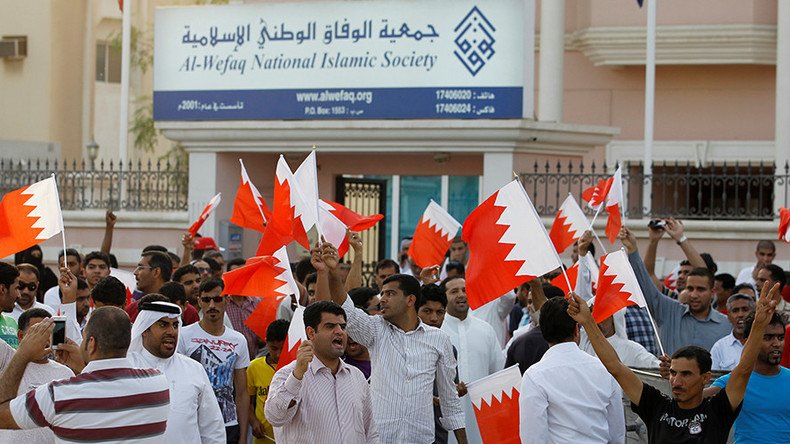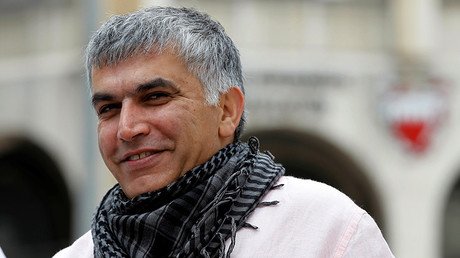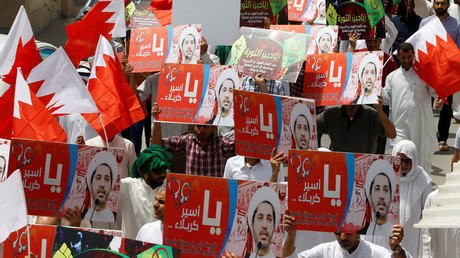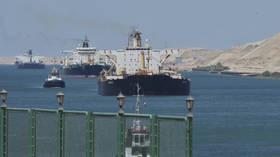Outcry after Bahrain court rules to dissolve main Shiite opposition bloc

An appeals court in Bahrain has upheld the order by a lower court to dissolve the al-Wefaq movement, the main Shiite opposition group in the Sunni-ruled kingdom, seen as the latest move in cracking down on dissent in the country.
On Thursday, judges upheld the decision made by a lower court in July to dissolve the group. The al-Wasat newspaper reported that the case was thrown out on the grounds of al-Wefaq’s lawyers not having legal capacity, though it did not provide any further details.
Lawyers for al-Wefaq have 45 days to mount another appeal, they told al-Wasat, as cited by Reuters.
Rights advocates have criticized the move, describing it as part of the Bahraini government’s crackdown on dissent.
“Bahrain's rulers believe in crushing opponents and silencing voices of criticism as the solution for Bahrain,” Sayed Ahmed Alwadaei, director of the London-based Bahrain Institute for Rights and Democracy, told the Middle East Eye. “Dissolving Wefaq today is the last nail in the coffin of King Hamad's claims of reforms.”
Research and Advocacy Director for the Middle East and North Africa at Amnesty International, Philip Luther, also released a statement, saying: “The decision to uphold the dissolution of al-Wefaq is a flagrant attack on freedom of expression and association and a brazen attempt to suppress criticism of the government in Bahrain. The Bahraini authorities have not presented any credible evidence that al-Wefaq is anything but a peaceful opposition movement which has been seeking reform in the country in the face of increasing government repression.”
The latest decision comes in the wake of a series of prosecutions of opposition figures. On Wednesday, three Shiite clerics were imprisoned for a year each for taking part in an “illegal gathering,” while the country’s most high-profile human rights activist, Nabeel Rajab, is due to be sentenced in October for criticizing the conflict in Yemen.
He was arrested on June 13 on separate charges of “spreading false information and rumors with the aim of discrediting the state” for tweeting and re-tweeting statements that criticized the actions of Bahrain’s forces in Yemen, where they joined the Saudi-led coalition in fighting the Shiite Houthi rebels.
On June 20 Bahrain stripped Ayatollah Isa Qassim, Bahrain’s leading Shiite cleric and spiritual leader of al-Wefaq, of his citizenship.
Al-Wefaq's secretary-general, Sheikh Ali Salman, was convicted of inciting unrest and calling for regime change, and sentenced to four years in prison. Under the latest ruling of May 2016, Salman's term has been extended to nine years on charges including trying to overthrow the regime by force.
The initial order to dissolve the group and let its funds to be seized by the government was made on July 17 after it was accused of, in the words of the Bahrain News Agency, embracing “terrorism, extremism and violence” as well as “foreign interference.” The ruling drew criticism from UN Secretary General Ban Ki-moon, as well as US Secretary of State John Kerry.
Originally formed in 2001, al-Wefaq became the largest group in parliament after winning 18 out of 40 available parliamentary seats in 2010, having secured 64 percent of the popular vote. However, MPs resigned en masse in disapproval of the government’s handling of the widespread protests in 2011, which were part of the Arab Spring uprisings.
Political parties are banned in Bahrain, and al-Wefaq operated as an association.
The Gulf kingdom has long had tensions between the ruling Sunni royal family and the Shiite majority. It is home to the US Fifth Fleet and is seen by other Sunni Gulf powers as a buffer against Iranian influence.
Anti-government protests have been taking place on and off in Bahrain since the outbreak of Arab Spring protests in 2011 that toppled rulers across the region. The Bahrain government responded to protests with crackdowns and coercion.















